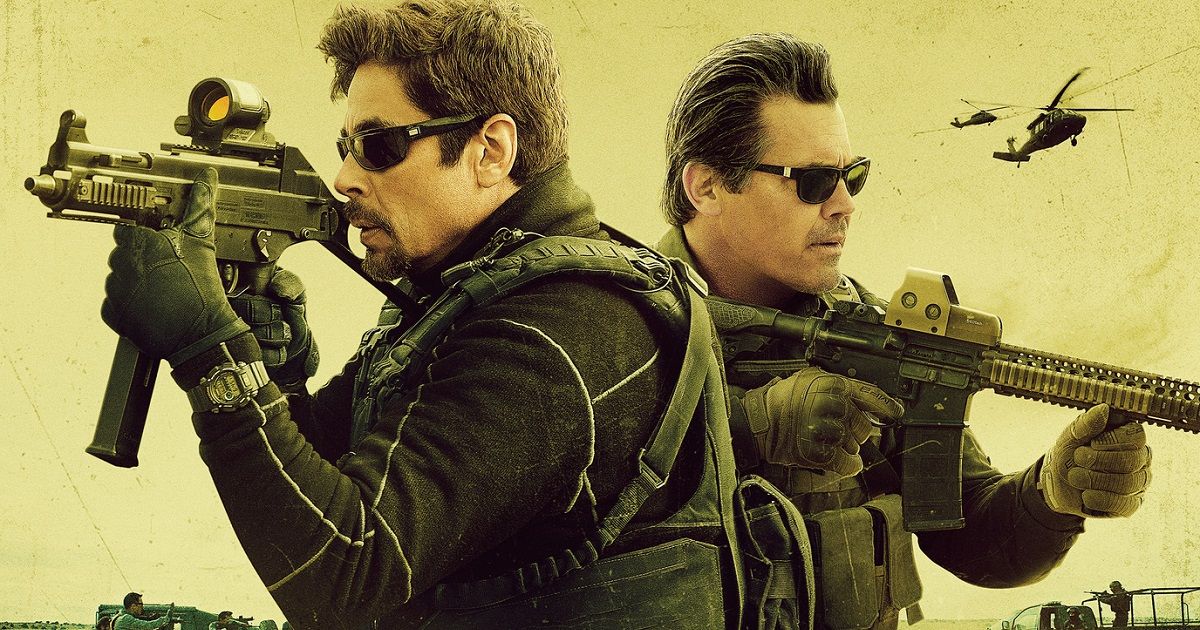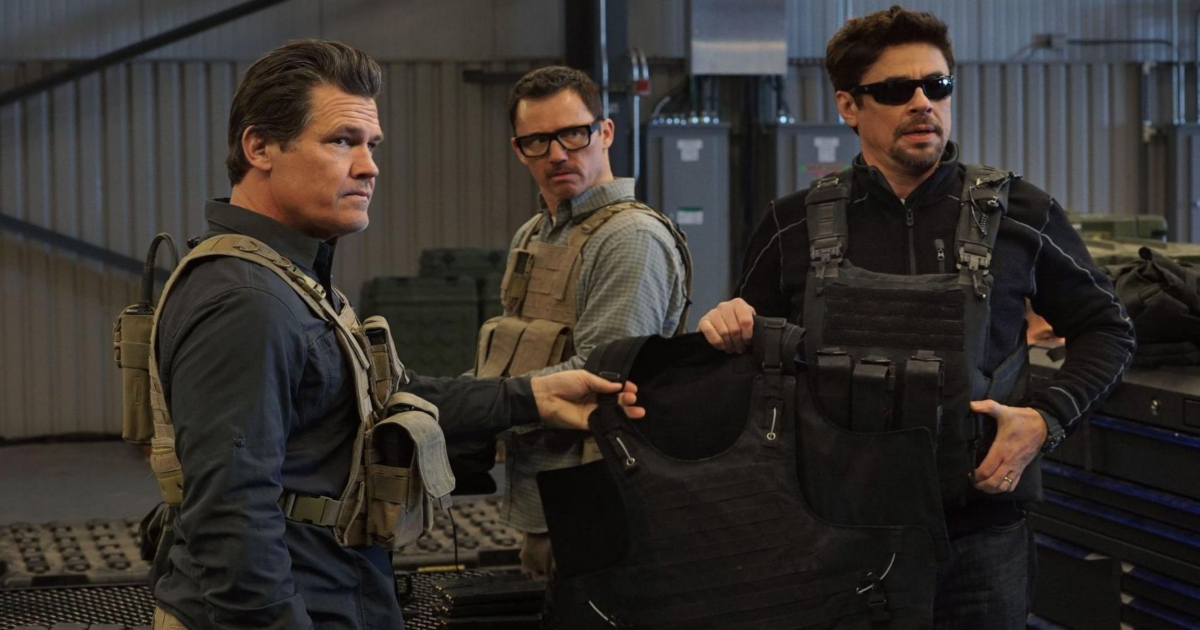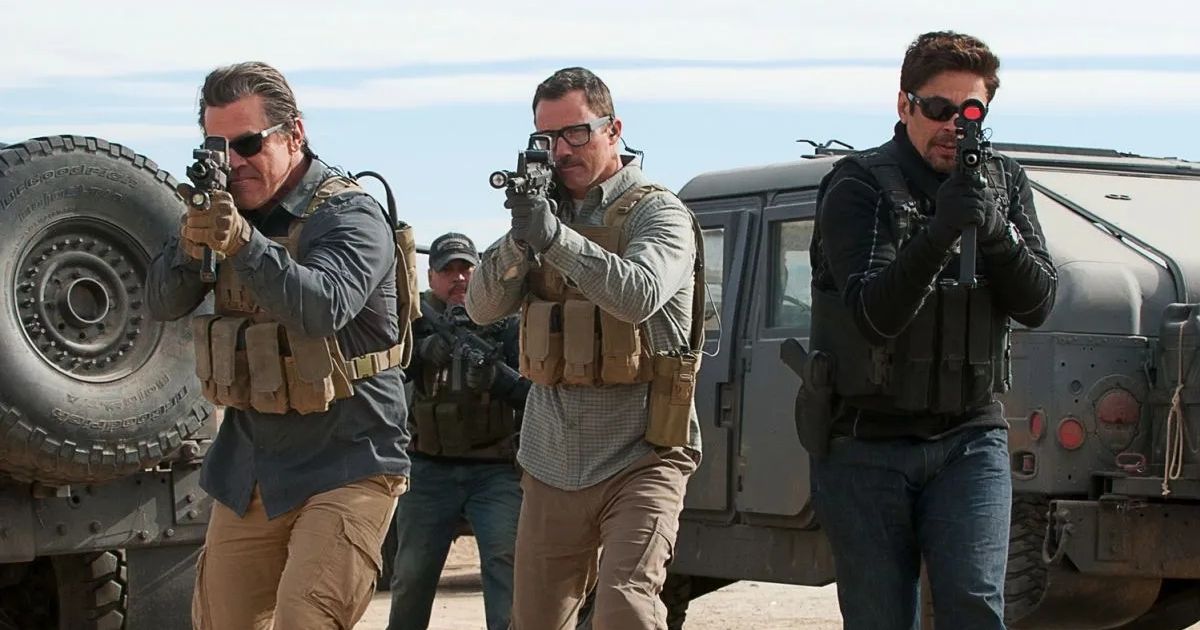Hollywood has a long history of taking a successful film and tacking on an unnecessary sequel to cash in on the popularity of the original. It has often been the case that following on from a critically and commercially buoyant original picture, Hollywood producers’ eyes are consumed by a giant dollar sign. Such a strategy rarely works out, and there are few better examples of that fact than Denis Villeneuve's 2015 action-thriller Sicario and its 2018 follow-up Sicario: Day of the Soldado.
Update June 2nd, 2023: This article has been updated with additional information regarding the future of Sicario: Capos.
It is well-documented that the pair of Brolin and Deakins have been long-term friends and collaborators, having worked on several projects together, including 2010’s True Grit, the critically adulated, No Country for Old Men, as well as In The Valley of Elah and Hail, Caesar! making for a prospectively insightful, open, and honest discussion when Brolin joined, arguably, the best cinematographer of all time on the Team Deakins podcast. Brolin, who had a leading role in both movies (as opposed to Deakins, who just worked on the first), explained why the sequel failed to live up to the expectations set by the original.
"[Filmmaker] Stefano Sillima did the second one. For what it is, and I would say this to Stefano's face, it's a bigger scope and more action, for what it is it's wonderful. But there's something really special about Sicario, there's something quieter and there's something a little more intelligent in how it unravels."
Naturally, Sicario: Day of the Soldado had a bigger budget and all the trappings of a shiny, financially meaty, Hollywood “dollar” project. Of course, while Stefano Sollima’s impressively shot picture had fans praising the stylish, slick aesthetic of the movie, some were quick to complain that it lacked the heart, evocation, measure, and cinematic consideration of the original. Cinematographer Roger Deakins opined that bigger action set pieces do not necessarily equate to a better cinematic experience, with it, in many cases, compensating for a deficiency in the art of storytelling.
"Sicario 2,' it shows that it was big, and the action sequences were amazing. I thought it was incredibly well shot, but it lacked that personality that 'Sicario' had. The strongest scene in all of 'Sicario' is the end in the kitchen where it's just Benicio [del Toro] and Emily [Blunt] and you're like, 'Wow, this is so intense.' You don't necessarily need all that [big action]."
While Josh Brolin and Deakins’ analysis seemingly points toward a disparity between the quality of the two Sicario products, with Denis Villeneuve’s critically-heralded, contemplative original possessing more of that indie, neo-noir crime thriller energy, and the second installment comprising far more of that highly-charged, big-budget Hollywood blockbuster feel, Brolin was quick to dispel apparent favoritism. Carefully pointing out that he is not of the belief that Day of the Soldado is an inferior product to Sicario, but simply that it affects the audience differently than that of the more thought-provoking first edition.
"Different strokes, different folks. It's not a negative with Stefano. He did something called ['Zero Zero Zero'] and it was along those same lines. It was big, it was very dramatic, but it wasn't as, like with 'Sicario' [and "Soldado"], as specific in its behavioral choices...It's a behavioral choice tonally, in camera placement, in lens choice, how subtle you can be. That's the difference, with 'Soldado' you're going 'wow, wow' and with 'Sicario' you are leaning further into it and you're going to get slapped but you can't help it, and you know it."
Sicario: Day of Salado's Box Office
What wouldn’t have been a concern in the minds of the Hollywood hotshots is the potential for the sequel to outperform both commercially and critically, Sicario: Day of the Soldado, and unfortunately, for them, that’s exactly what it did. While the movie had a moderately impressive opening weekend, grossing $19 million at placing third that weekend behind holdovers Jurassic World: Dominion and Incredibles 2, the bottom quickly fell out beneath it. It grossed $50 million domestically and $75 worldwide. A respectable take against its $30 million budget, though it did underperform against Sicario worldwide, which grossed $84 million.
Banking just shy of $10 million dollars less at the global box office, as well as receiving a tirade of mediocre reviews, the sequel was a comparative failure. In all honesty, Sicario was always a weird film to make into a franchise, and what is even stranger is they are going to move forward.
The Future of Sicario
Plans for a third Sicario movie were made before the release of Day of the Soldado. The news was quiet until 2021, when it was revealed the title would be Sicario: Capos. No release date has been set, and no news on if or when filming is to begin. Director Stefano Sollima is not expected to return and instead moved on to direct the Michael B. Jordan Tom Clancy adaptation Without Remorse. There is hope that Sicario screenwriter Taylor Sheridan could step in to direct after having already helmed Wind River and Without Remorse, but he is likely busy with his various Yellowstone series on Paramount+.
Brolin, meanwhile, clearly struck up quite the rapport with his French-Canadian director Denis Villeneuve and is unquestionably a great admirer of his work as a filmmaker. It was evident that commendation was reciprocated by Villeneuve, with the pair teaming up for 2021’s screen adaptation of Frank Herbert’s seminal sci-fi series, Dune. The ambitious film premiered to near-universal acclaim. With the release of the sequel, Dune: Part II, just months away, with Brolin set to reprise his role as Gurney Halleck and Villeneuve’s name emblazoned across the director’s chair, the pair have formed quite the blossoming cinematic working relationship.



